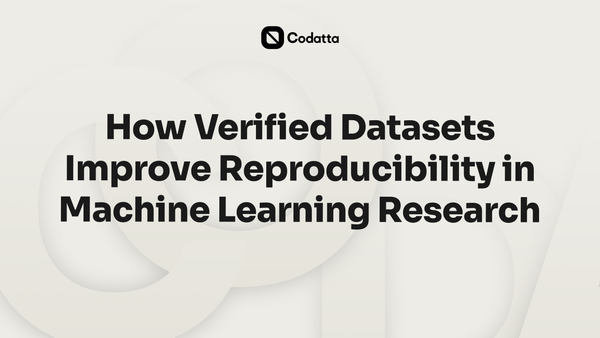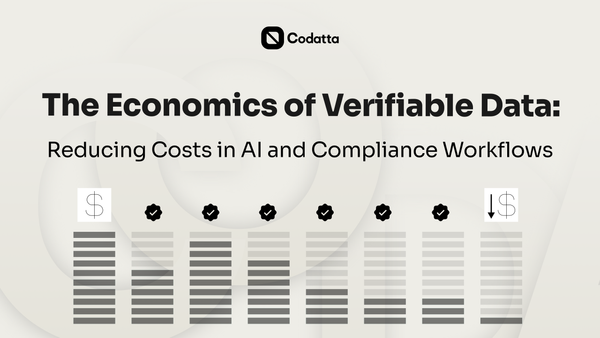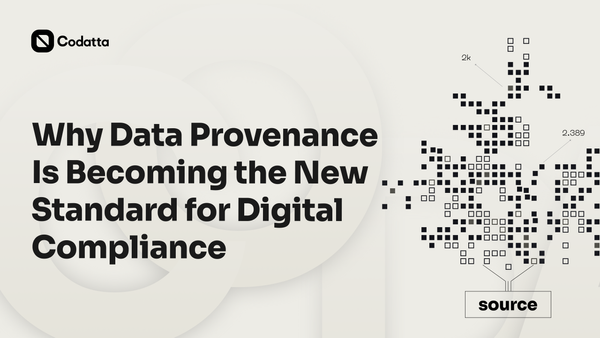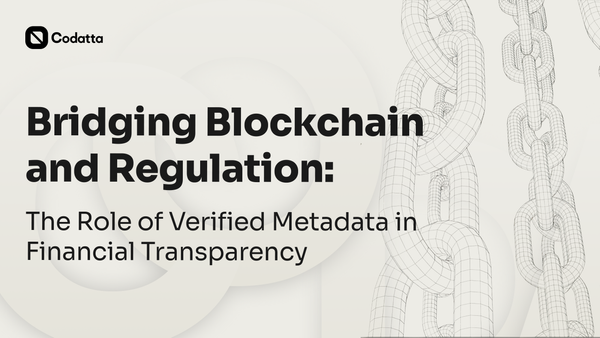The Future of Community-Driven AI Data
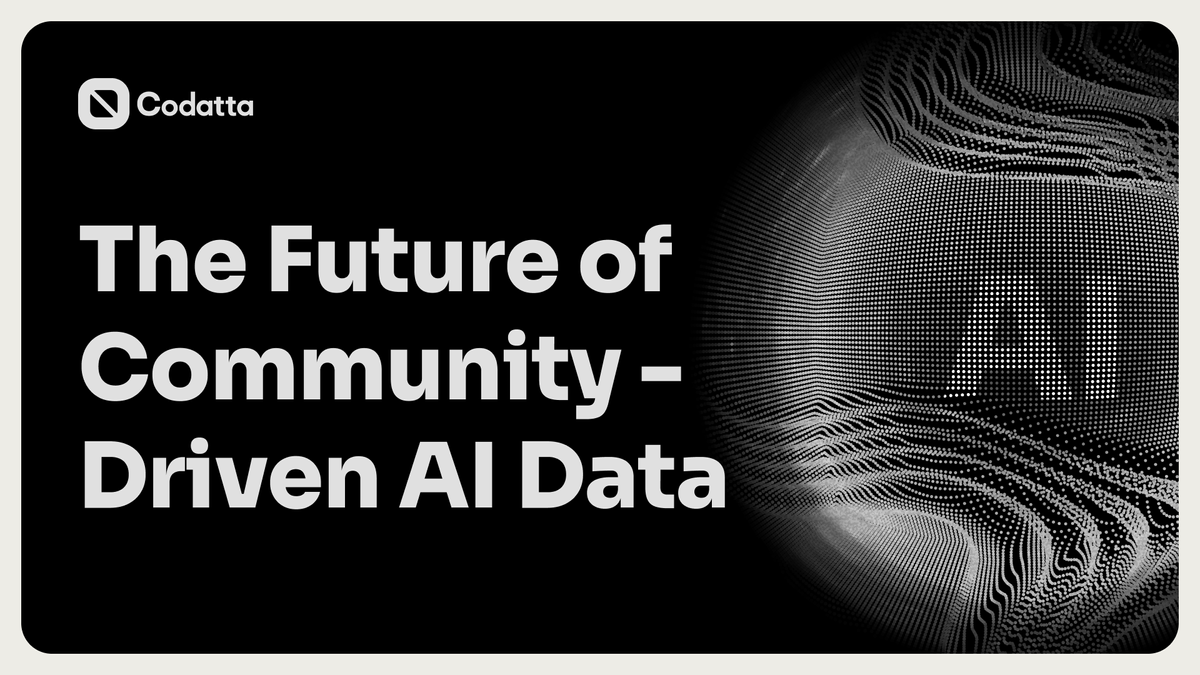
AI depends on the quality of its data. Centralized sources are often limited, expensive, and not always reliable. Community-driven data offers a better way, where contributors help create, verify, and improve datasets together.
Codatta is building an open layer for this kind of collaboration. Read on to learn why community-driven data matters and where it's headed next.
Challenges with Centralized AI Data
Centralized datasets remain one of the biggest obstacles for artificial intelligence in 2025. They often sit in silos, making it difficult for community members and stakeholders to access or collaborate. This limits how ai models and machine learning algorithms can be tested, refined, and integrated into real decision-making.
Another issue is validation. Without community-driven review, datasets used to train AI systems and AI tools may carry hidden bias or errors. That weakens trust and slows down initiatives that aim to foster responsible AI.
Finally, duplication across isolated sources adds costs and inefficiency. Instead of an inclusive ecosystem where contributors can build and share collaboratively, centralized structures repeat the same work, wasting time and resources.
What Codatta Brings to the Table
Codatta (codatta.io) introduces an open, decentralized, multi-chain protocol where community members and research communities can collaborate on data collection, data curation, and data analysis. It blends human contribution with community-driven AI development, creating workflows that integrate AI responsibly and adapt to community needs.
Contributors are not just helping build AI tools. They also earn ongoing royalties when AI systems and diverse AI models are trained on their datasets. This approach encourages data quality, trustworthy data management, and ethical AI practices while reducing the challenges and opportunities gap often seen in centralized systems.
By focusing on inclusive AI models and human-centered AI principles, Codatta aims to empower people, foster collaboration between community groups and organizations, and ensure that AI initiatives align with social impact goals, data privacy standards, and long-term research needs.
Incentives that Drive Participation
Codatta makes participation worthwhile by giving contributors real value. The Points System records each contribution, whether it is data collection, curation, or analysis, and connects it to future token airdrops. It is a straightforward way to recognize effort and keep the process transparent.
The Royalty Model ensures long-term rewards. When datasets are used to train new models or build tools, contributors continue to benefit from their work. This setup values data quality and gives people a direct stake in ongoing development.
Together, these incentives encourage community members to stay engaged, collaborate, and help build an ecosystem that works for everyone.
Technical & Governance Backbone
Codatta combines on-chain proofs with off-chain encrypted data to keep records transparent while protecting sensitive information. This balance improves data privacy and makes the workflow more trustworthy for community-based initiatives.
The protocol runs across multiple networks, including BNB Chain, Ethereum, and Solana. Multi-chain support helps bridge AI development with diverse ecosystems and allows research communities to integrate AI more easily into existing data science and data management processes.
Governance is handled by the community. Reputation-based validation ensures that datasets are curated responsibly and reflect data quality standards. This approach empowers people, supports ethical AI principles, and builds a collaborative foundation for inclusive models and future AI initiatives.
Future Outlook
Codatta’s roadmap includes expansion into robotics, DeSci, and healthcare, where reliable health data and trustworthy data management are essential. These areas highlight both the challenges and opportunities in adapting AI to real-world needs.
New features are being developed, such as layered incentives that combine Points with NFTs. This setup supports community-based participation and gives contributors a clear role in data collection, data processing, and data curation.
The broader aim is to democratize datasets so community members, research communities, and social sciences groups can collaborate effectively. This approach strengthens data literacy, improves data quality, and ensures that AI initiatives follow ethical principles while supporting inclusive models.
Conclusion
Community-driven AI offers a practical way to improve data science and AI development. Instead of closed systems, contributors, community groups, and research communities can work together to build datasets with better data quality and stronger data security.
Codatta highlights how ethical AI principles, good data management, and open-source collaboration give people a direct role in creating and using artificial intelligence. With diverse AI contributions and human-centered AI practices, the ecosystem can support community needs and make AI initiatives more trustworthy and effective.

